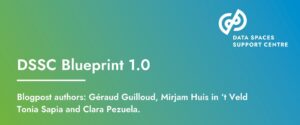This content was created by the Data Sharing Coalition, one of the founding partners of the CoE-DSC.
The Data Sharing Coalition was founded two years ago to drive (cross-sectoral) data sharing on a large scale to unlock the true value of data for businesses and society as a whole. What have we achieved in those years and what are we going to realise in the coming years? In those past two years, 55 participants joined the Data Sharing Coalition. In addition, we created various tools (including our Data Sharing Canvas) and realised seven data sharing use cases – with more use cases to come in the future. Lastly, we are creating the foundation for a generic infrastructure for data sharing which we want to deliver in 2025.
55 participants collaborate to unlock the value of data
Since our founding, 55 participants have joined the Data Sharing Coalition. This is an important milestone for us since we are an open, international initiative in which a large variety of organisations collaborate on unlocking the value of data for businesses and society as a whole. More organisations joining means we get more and more diverse perspectives on data sharing, greater awareness of the market about the value of data sharing, and more parties willing to make their data available.
Realising valubale data sharing use cases
Together with our participants, we have been defining and realising various use cases: concrete data sharing cases that provide insight into the value of unlocking data. Take for example our Green loans use case, where a consumer shares data on his or her energy consumption with an intermediary and/or loan provider, who in turn is able to assess potential savings from certain energy saving measures. In the end, a consumer can use his or her energy data to make their house more sustainable. Or our use case that focuses on sharing data to improve monitoring of and to combat human trafficking. To make sure that these use cases are designed in a reliable, scalable and efficient way, we provide various tools (including our Data Sharing Canvas), expertise, and resources to organisations that want to get started with data sharing. In addition to the seven use cases that are already being developed, we will continue to realise new use cases in 2022.
The use cases do not only offer new value creation, they also offer valuable and practical insights into the challenges that our participants face. Combining all these insights helps the Data Sharing Coalition determine which conditions are needed to lower the barriers for data sharing. These insights are crucial to document generic agreements for data sharing, which will help to improve large scale adoption of data sharing in the future.
Defining generic agreements to maximise the untapped value of data
Sharing data is not new, but it often only happens bilaterally or within a sector or domain. To unlock the maximum value of data throughout the digital economy, it is important that data is shared between companies, sectors, and domains in a scalable efficient way. To enable this, generic agreements for sharing data are necessary. Participants of the Data Sharing Coalition have been exploring how to shape those generic agreements since January 2020.
The generic agreements concern the business, legal, operational, functional, and technical conditions under which data can and is allowed to be shared. Getting a grip on data is an important requirement here, so sharing data must take place under control of the entitled party. Our Data Sharing Canvas is the starting point for these agreements and is the foundation for an infrastructure based on generic agreements which we want to deliver in 2025. This infrastructure lowers barriers for organisations with data sharing ambitions to establish trust and technical interoperability with their data sharing partners.
Would you like help with your (organisation’s) data sharing use case? Do you want to learn from other organisations? Or do you have an interesting idea for a use case? Please send us an email: info@coe-dsc.nl




